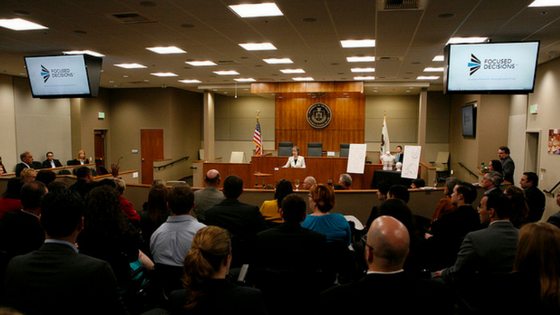The Court of Appeals for the Eighth Circuit has affirmed a lower court’s ruling awarding $93,243.50 in attorney fees and costs to the plaintiffs in a Fair Credit Reporting Act suit, arguing the defendant went too far with its discovery requests and for not taking reasonable steps to reduce the burden on the plaintiffs.
The background: A married couple learned that the defendant was reporting an automobile loan on their credit report as being discharged in bankruptcy, which was not true. They had been making payments on the loan for years.
- The couple sent letters to the defendant pointing out the error and nothing changed.
- They then filed suit in Indiana state court, accusing the defendant of failing to conduct a reasonable investigation under the FCRA.
- The defendant removed the case to federal court and subsequently issued subpoenas that sought documents and deposition testimony from the plaintiffs in this case — the law firm the couple had hired. The requests sought information about the assistance the plaintiffs had provided to the couple and how it structured its business, as well as asking for assistance that the plaintiff provided to other clients.
- The plaintiff sought relief from the subpoenas and a District Court judge ruled that some of the defendant’s requests were not relevant to the suit filed by the couple against the defendant, quashed the subpoenas, and awarded the plaintiffs $93,243.50 in fees and costs. The defendant appealed the ruling.
The ruling: In this case, the defendant was sued for not conducting a reasonable investigation, and its defense was that it had no duty to investigate because it was not notified directly by the couple or indirectly through a reseller. The defendant’s view was the “directly” applied only to being notified by the consumer, and that a letter from a law firm can not trigger a duty to investigate.
- The issue with that interpretation, according to the Eighth Circuit, is that its reading of the statute isn’t the most practical. The word “directly” means who the letter goes to, not where the letter must come from. There is nothing in the FCRA that says the letter “must go directly from a consumer’s mailbox to the credit agency’s post office box or business address.”
- This meant that many of the requests from the defendant were irrelevant, the Eighth Circuit ruled.
- “It makes no difference that Experian believes it acted in good faith,” the Appeals Court wrote. “For one thing, the district court disagreed. But even if it had come out the other way, there is no good-faith defense for issuing an overly burdensome subpoena.”






